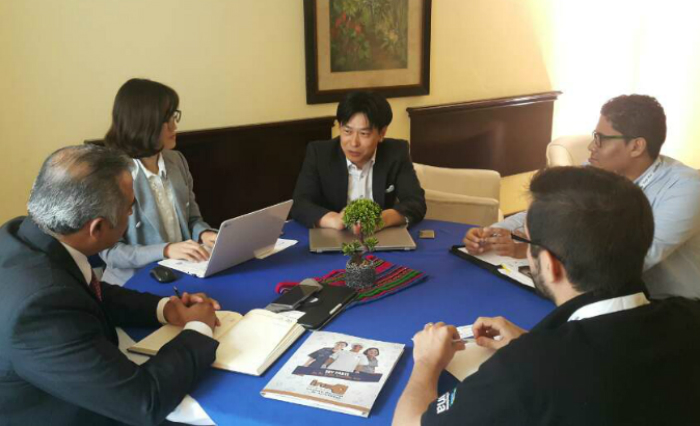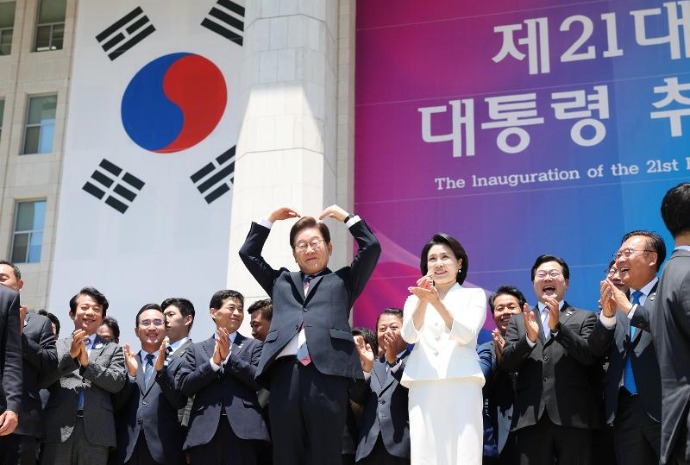
Staff from the Human Resources Development Service of Korea explain Korean policies regarding human resource development at a meeting of the Inter-American Centre for Knowledge Development in Vocational Training's (ILO/CINTERFOR) Technical Committee, in San Jose, Costa Rica, on Aug. 9. (Human Resources Development Service of Korea)
By Hur SomEe and Kim Young Shin
Korea shared its human resource development policies during a meeting of the Inter-American Centre for Knowledge Development in Vocational Training's (ILO/CINTERFOR) Technical Committee, in San Jose, Costa Rica, from Aug. 9 to 11.
The meeting, held every two years to share knowledge about job training and to generate business cooperation among the 20 member countries in Central or South America, was attended by 70 labor officials. The Human Resources Development Service of Korea (HRD Korea) presented its “solutions to bridge the gap of employment and vocational training” and shared “exemplary cases of cooperation on skills competition and ways to cooperate with Central and South American countries.”
The organization also shared Korean policies that help solve mismatches in the labor market. One was its National Competency Standards (NCS), which systemize the knowledge, skills and attitude required to perform duties at the workplace by industrial sector and level. The other was the Work-learning Dual System that allows youth to get on-the-job training as a student worker and to achieve theoretical lessons from community colleges.
The president of HRD Korea, Park Young-bum, said that introducing the NCS and Work-learning Dual System at the meeting was very meaningful. “The human resource development techniques of Korea, a country which achieved economic growth in a short amount of time, could also be effectively applied in Central and South American countries.”
sehp91@korea.kr
